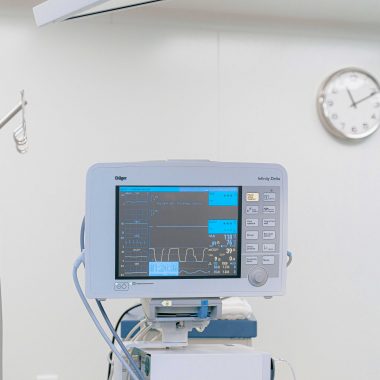Anorexia Nervosa is an eating disorder during which patients starve themselves to become skinny. It is a mental illness that prevents sufferers from seeing their condition’s actual state and severity. It is hazardous and scary and shared amongst teenagers, especially teenage girls who are middle school and high school, attendees. This illness is not born within the individual. Instead, it’s mainly brought on by bullying at home or school, being called fat, and being made fun of for how the person looks. It can also be caused by the new obsession with social media or celebrities who look a certain way and are idolized for their appearance.

What are the Symptoms of Anorexia Nervosa?
Often, parents and close friends don’t notice their loved one exhibiting disordered eating patterns and behaviors.
Individuals who suffer from this eating disorder tend to hide their suffering for as long as possible, either out of shame or because they don’t want people to notice and offer them help, or they might not see it as harmful.
A lot of individuals who suffer from anorexia nervosa might not understand the severity of the situation and might push back when they are offered help.
The symptoms are typically more apparent during the later stages of the disorder.
– Extreme weight loss
– hair loss
– loss of teeth
– stomach aches and ulcers
– brittle, easily breakable nails
– insomnia
– back and joint pains
– Fainting for feeling faint
– fast heartbeats and shortness of breath
You might not notice these symptoms immediately, but the more weight the individual loses, the more pronounced the disorder will become.
It becomes harder to hide symptoms the deeper one is in disorder.
Ideally, you would want to prevent it from getting this bad, but if it does get that bad, it is only a matter of time until the individual becomes so malnourished it becomes fatal.

The diagnosis process:
It is generally easy to diagnose an anorexia nervosa patient. It is done through a couple of tests that a doctor asks for once they suspect the patient might suffer from anorexia nervosa.
These tests are not only used to diagnose anorexia nervosa but also to ensure that there’s no other medical cause for the symptoms.
The tests include:
–Physical exam: the doctor might measure your height and weight and check your vital signs such as your heartbeat, blood pressure, and body temperature.
They also examine your abdomen and listen to your heart to spot any irregularities or problems.
They check your skin, nails, and teeth to prove the diagnosis further.
-Lab work: blood may be drawn and tested. They will test your blood count, electrolytes, and protein levels.
They will also test your liver to see if it’s functioning well or something is wrong.
Your kidneys and thyroid will also be tested.
–Psychological evaluation: a mental health professional will be notified of your condition, and they will perform a mental health assessment.
They will ask you about your feelings and thoughts related to your views on food, how you see food, and your trauma and self-image issues.
They may even ask you to complete a psychological self-assessment questionnaire.

Anorexia Nervosa treatment plan:
With Anorexia Nervosa patients, starting treatment as early as possible is extremely important to reduce the risks of serious complications, especially if the patient has already lost a lot of weight.
Several different specialized therapies are available to treat those struggling with anorexia. These treatments aim to help patients understand the causes of their eating problems by offering them eating behavior therapy that targets their eating habits and helps them feel more comfortable consuming food. This will eventually lead them to eat better and reach a healthier, more sustainable weight.
Most people suffering from anorexia can stay at home during their treatment. However, they usually will have weekly checkups at a clinic and be able to return home afterward.

However, some patients may be admitted to the hospital if their anorexia has progressed significantly and they have serious health complications.
For example, if:
-The patient is severely underweight and still losing weight
-they have become very ill, and their life might be at risk
-They are minors, and doctors believe they do not have good or enough support at home
-Doctors are worried they might harm themselves
Doctors will watch the patient’s weight and health after they are admitted to the hospital. Then, they’ll help them reach a healthy weight slowly and gradually and either start or continue therapy.
Once doctors are happy with the patient’s weight and physical and psychological health, they are released and should be able to return home.
If anyone you know or you are suffering from anorexia Nervosa, please seek immediate help.








